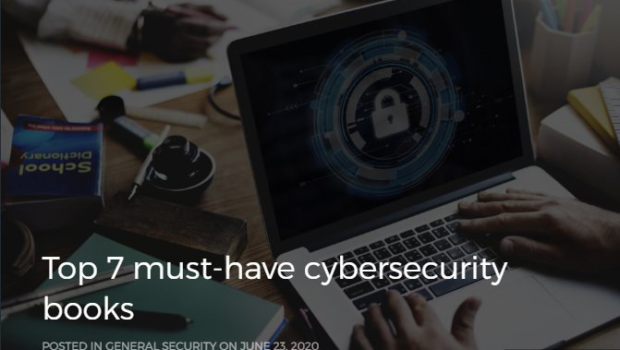Resource: Top 7 Books for Cyber Security
The Infosec Institute recently published their list of the Top 7 Must Have Cybersecurity Books. If you’ve been looking for a way to expand your knowledge in cybersecurity, looking for additional reading material during this pandemic, or just wanted to add to your technical resource library, here’s a great list to get you started. All the books on their list are from 2018, 2019 or 2020, so are all fairly recent and up to date.
The first book on the list is Tribe of Hackers: Cyber Advice from the Best Hackers in the World by Marcus Carey (July 23, 2019), which contains 70 interviews with information security specialists and hackers. Each chapter is one interview and many of the interviews contain tips on getting into and succeeding in cybersecurity.
The second book on the list is The Ethics of Cybersecurity by Michele Loi (February 10, 2020), and contains case studies and uses the case studies and ethical issues to discuss the current ethical issues in cybersecurity, and also cover guidelines and suggestions to solve those issues.
The third book on the list is Cybersecurity Essentials by Charles Brooks and Christopher Grow (October 30, 2018) and is a great introductory book for those looking to get started in cybersecurity. The book covers the four basic areas around cybersecurity, securing devices, securing infrastructure, securing perimeters and securing local networks.
For the complete list of books and details on each check out the list at the Infosec Institute.
K2 Cyber Security offers an ideal runtime protection security solution that detects true zero-day attacks, while at the same time generates the least false positives and alerts. Rather than rely on technologies like signatures, heuristics, fuzzy logic, machine learning or AI, we use a deterministic approach to detect true zero-day attacks, without being limited to detecting attacks based on prior attack knowledge. Deterministic security uses application execution validation, and verifies the API calls are functioning the way the code intended. There is no use of any prior knowledge about an attack or the underlying vulnerability, which gives our approach the true ability to detect new zero-day attacks. Our technology has 8 patents granted/pending, and has no false alerts.
We have also published a video, The Need for Deterministic Security. The video explains why the technologies used in today’s security tools, including web application firewalls (WAFs) fail to prevent zero day attacks and how deterministic security fills the need for detecting zero day attacks. The video covers why technologies like artificial intelligence, machine learning, heuristics, fuzzy logic, pattern and signature matching fail to detect true zero day attacks, giving very specific examples of attacks where these technologies work, and where they fail to detect an attack.
The video also explains why deterministic security works against true zero day attacks and how K2 uses deterministic security. Watch the video now.
Change how you protect your applications, include RASP and check out K2’s application workload security.
Find out more about K2 today by requesting a demo, or get your free trial.










Gloss